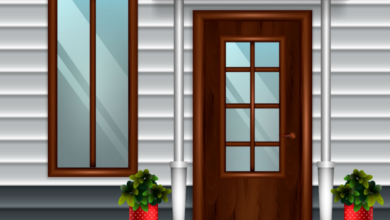Breaking Through Plateaus: Overcoming Challenges in Learning French

Have you ever wondered how to learn French effectively and effortlessly? Many aspiring learners find themselves overwhelmed by tricky grammar rules and unfamiliar vocabulary. However, mastering French doesn’t have to be an uphill battle.
In this blog post, we’ll unveil proven strategies and insider tips on how to learn French that will not only make the process enjoyable but also ensure steady progress. By the end, you’ll be equipped with the tools and knowledge to confidently navigate your French learning journey and achieve fluency faster than you ever imagined.
Getting Started – Bonjour, French!
First things first, immerse yourself in French from the get-go. Start with basics like greetings, common phrases, and pronunciation.
Apps like Duolingo or Babbel are great for this. Listen to French music or watch French movies with subtitles to get used to the sounds.
Building Your Vocabulary – Words, Words, Words
Expand your vocabulary systematically. Learn themed sets of words like colors, food, or travel to make your learning more organized and effective. Flashcards are handy here – write the French word on one side and the English translation on the other, and include example sentences to understand their usage in context.
Review them daily until they stick, and consider using mobile apps or online tools to track your progress. Additionally, try incorporating these new words into your daily conversations or writing exercises to reinforce your memory.
Grammar Grind – Taming the Beast
French grammar can be tricky with its genders, verb conjugations, and complex sentence structures. The language has masculine and feminine nouns, each affecting articles and adjectives in unique ways. Verb conjugations change not only with tense but also with the subject pronoun, making it essential to memorize various verb forms.
To tackle these challenges, take it step by step. Start with present tense verbs and familiarize yourself with regular and irregular forms.
Once comfortable, move on to past and future tenses, paying attention to auxiliary verbs and past participles. Practice forming sentences – even simple ones – to build confidence. Writing and speaking regularly will help make these grammatical structures feel more natural over time.
Speaking Practice – Parlez-vous Français?
Speaking is where theory meets reality. Find a language partner or join conversation groups to practice regularly. It’s not just about the words but also about understanding cultural nuances and expressions.
Don’t worry about making mistakes – it’s part of the learning process and helps you improve. The more you speak, the more fluent and confident you’ll become. Over time, this consistent practice will help you to think and respond more naturally in the new language.
Listening Skills – Tuning Your Ear
Train your ear to understand spoken French. Listen to podcasts or watch French videos. Start with slower speech and gradually move to normal speed.
Try to catch keywords and phrases, even if you don’t understand everything at first. Practice regularly, and don’t be discouraged by initial difficulties.
Engage with a variety of content, such as news, interviews, and movies, to expose yourself to different accents and speaking styles. Additionally, consider repeating phrases out loud to improve your pronunciation and reinforce your listening skills.
Overcoming Plateaus – When Progress Slows Down
Plateaus are part of the learning journey, and experiencing them is completely normal. If you feel stuck, switch things up. Try a new learning method, such as interactive tools or hands-on practice, or focus on a different skill that complements your primary goal.
Sometimes taking a break can also help – your brain needs time to process information and consolidate what you’ve learned. Engaging in relaxing activities like a walk or a hobby can provide the mental reset you need to return with fresh energy and perspective.
Mastering French – A Journey of Consistency and Practice
One of the most common questions is how long it takes to learn French. Well, it varies. Some people grasp the basics in a few months, while fluency might take years.
The key is consistency and practice. Set realistic goals and celebrate small victories along the way.
Resources Galore – Tools for Success
Use all the tools that are at your disposal. Language apps like Duolingo and Babbel let you practice with other people and online courses from sites like Coursera and edX give you a structured way to learn. You can learn a lot about grammar and vocabulary from textbooks and workbooks.
You can also practice speaking with native speakers on language exchange sites like Tandem or HelloTalk. Find the method that works best for you by trying different ones. Then, stick with it for the best results.
Cultural Immersion – Vive la France!
It’s not enough to just learn grammar and words when you want to learn French. You also need to understand the culture. Learn about French traditions, literature, food, and movies. Discover the works of famous authors like Victor Hugo and Albert Camus, enjoy the delicious food of France, including croissants and coq au vin, and get lost in the movies of great directors like François Truffaut and Jean-Luc Godard.
Do not forget to learn about French customs, such as how to celebrate Bastille Day and how to taste wine. You will want to learn more if you feel like you are part of the culture.
Staying Motivated – Keep Going!
Motivation can wane, especially when faced with challenges. It’s essential to remind yourself why you started learning French in the first place. Maybe it’s for travel, to experience the culture and communicate with locals. Perhaps it’s for work, to open up new career opportunities and enhance your professional skills.
Or maybe it’s for personal growth, to challenge yourself and expand your horizons. Set clear, achievable goals, track your progress regularly, and reward yourself along the way.
Celebrate the small victories, like mastering a new verb conjugation or understanding a French film without subtitles. By keeping your end goals in mind and acknowledging your achievements, you’ll find it easier to stay motivated and continue your language-learning journey.
Mastering How to Learn French – Final Thoughts
In conclusion, understanding how to learn French effectively involves a blend of consistent practice, cultural immersion, and the right resources. By incorporating structured vocabulary building, engaging grammar exercises, and plenty of speaking and listening practice, you can make significant progress.
Remember, persistence is key, and enjoying the journey will make it all the more rewarding. Keep exploring and experimenting with different methods, and you’ll find that mastering how to learn French is well within your reach. Bonne chance!
Want to learn more? Don’t forget to explore our other articles before you leave!



